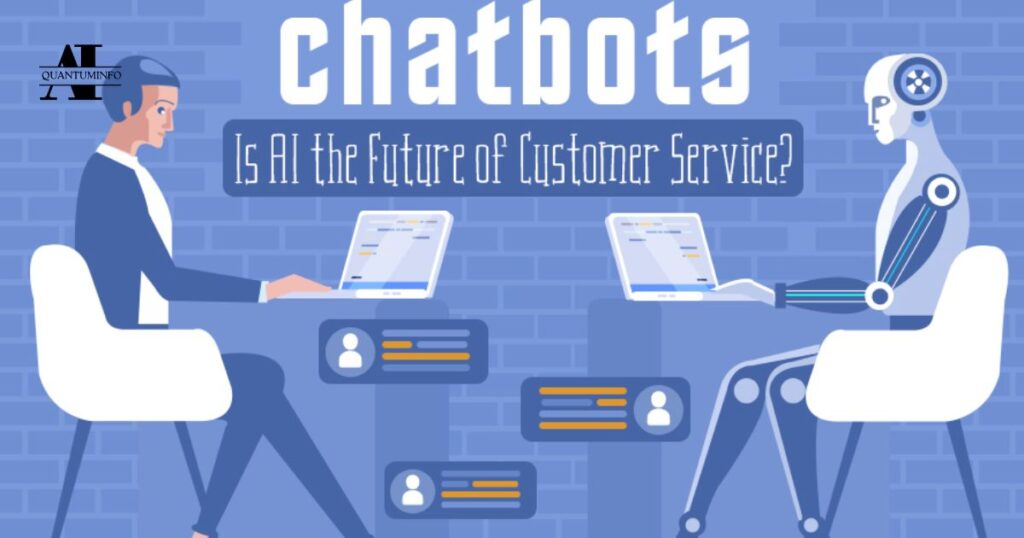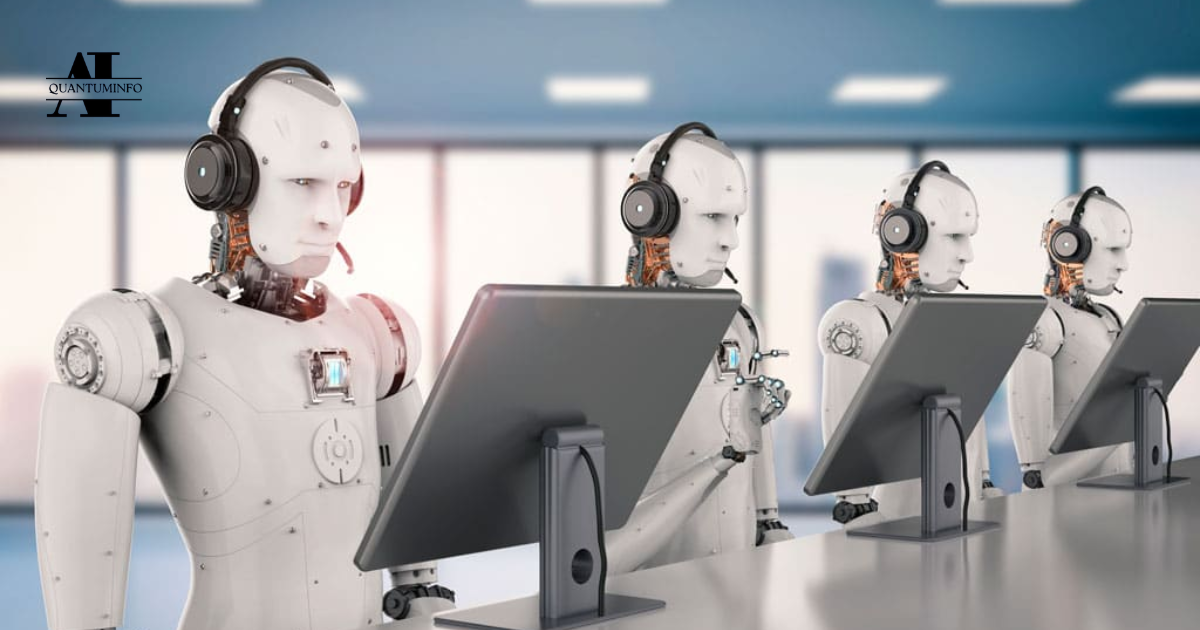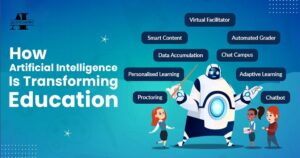In today’s fast-paced digital landscape, artificial intelligence (AI) is changing the way businesses engage with customers. From chatbots to predictive analytics, AI tools are reshaping the customer service experience, making it more efficient and personalized. This blog post will examine various aspects of AI in customer service, exploring its definition, key benefits, practical applications, and future implications for businesses and consumers.
What is AI in Customer Service?
Artificial intelligence in customer service refers to the integration of machine learning, natural language processing, and other AI technologies to improve customer interactions. Essentially, AI systems can analyze data, identify patterns, and automate responses, thereby streamlining customer service processes.
Key Components of AI in Customer Service
Chatbots: These AI-powered tools mimic human conversations. They can handle a range of customer queries from simple queries to more complex issues.
Natural Language Processing (NLP): This technology allows machines to understand and interpret human language, enabling more natural interactions between users and AI systems.
Machine Learning: By analyzing vast amounts of data, machine learning algorithms can predict customer behavior, helping businesses tailor their services to individual needs.
Sentiment analysis: AI can gauge customer sentiment through text or voice, allowing companies to respond appropriately to customer sentiment.
Automation: Routine tasks such as ticketing, data entry, and follow-ups can be automated, freeing human agents from more complex issues.
How AI Enhances Customer Interactions

AI enhances customer interaction by providing instant responses, personalizing experiences, and improving service consistency. Consumers today expect quick resolutions and tailored services, and AI enables enterprises to meet these expectations effectively.
Key Benefits of AI in Customer Service
Integrating AI into customer service has many benefits that can significantly impact a company’s bottom line. Let’s look at some of these benefits in detail:
Increased efficiency
AI systems can handle multiple inquiries at once, reducing waiting times considerably. For example, chatbots can respond to thousands of users at once, ensuring that no one is left waiting.
24/7 availability.
Unlike traditional customer service agents, AI never sleeps. This means that customers can get help at any time, day or night. This consistent availability can lead to high customer satisfaction rates.
Cost reduction
By automating routine tasks, businesses can save on labor costs. According to a McKinsey report, companies that adopt AI can reduce operational costs by up to 30%.
Better customer insights.
AI tools can analyze customer interactions to uncover valuable insights. By understanding customer preferences and behaviors, businesses can tailor their marketing strategies and improve the overall quality of service.
Personalization
AI can analyze past interactions and purchasing behaviors to provide personalized recommendations, making customers feel valued and understood.
Scalability
As businesses grow, so do customer queries. AI systems can easily scale to handle increased volume without requiring a proportional increase in staff.
Reducing human error Agents can make mistakes under pressure, but AI systems operate with high precision. This reliability can improve the overall quality of customer service.
Prompt resolution of problems
AI can effectively analyze and provide solutions to problems, often in real-time. This quick change can significantly enhance the customer experience.
Improved employee productivity
By automating mundane tasks, AI allows customer service agents to focus on more complex issues, leading to higher job satisfaction and productivity.
9 Ways You Can Use AI in Customer Service
The application of AI in customer service is diverse and can be tailored to meet specific business needs. Here are nine effective ways to take advantage of AI:
Implement chatbots for frequently asked questions.
Chatbots can handle a large number of frequently asked questions, providing quick answers and freeing up human agents for more complex inquiries.
Do you Want to know about Talk to an AI - Read More
Use AI for data analysis.
Use AI tools to analyze customer data for trends and insights. This information can inform marketing strategies and improve service delivery.
Personalize customer experiences
Use AI to track customer preferences and behaviors. This allows for tailored marketing messages and product recommendations.
Integrate voice assistants.
Voice recognition technology can enhance user interactions, allowing users to solve problems with voice commands instead of typing.
Automated ticketing systems
AI can streamline the ticketing process, and categorize and prioritize customer requests to ensure timely responses.
Embrace predictive analytics
Use AI to predict customer needs based on historical data. This proactive approach can significantly increase customer satisfaction.
Provide sentiment analysis.
Apply sentiment analysis tools to gauge customer emotions during interactions, leading to more empathetic responses.
Build knowledge bases
AI can help build and maintain comprehensive knowledge bases, providing easy access to information for both users and agents.
Facilitate feedback collection.
Use AI to collect and analyze customer feedback, identify areas for improvement, and enhance service quality.
How will AI affect customer service?

The integration of AI into customer service will reshape the industry in profound ways. Here are some expected effects:
Change in job role
While AI will automate many routine tasks, it will also create new job opportunities in areas such as AI management and data analysis. Employees must adapt and develop new skills to thrive in this changing landscape.
Improved customer expectations
As AI improves the speed and quality of service, consumers will expect even higher quality. Businesses will need to innovate to keep pace with these evolving expectations constantly.
Greater focus on personalization
AI will drive businesses to adopt more personalized service strategies. Companies that fail to leverage customer data effectively risk losing competitive advantages.
Do You Want to Know About Cloud AI - Read More
Increased competition
As more businesses adopt AI technologies, competition will intensify. Companies must differentiate themselves through superior customer experiences to stand out.
ETHICAL CONSIDERATIONS
With the rise of AI comes the need for ethical guidelines. Businesses must navigate privacy concerns and ensure that AI systems are used responsibly.
FAQ’s about the Customers Service
What are the main benefits of using AI in customer service?
AI increases efficiency, reduces costs, and provides 24/7 availability, improving customer satisfaction.
How does AI improve customer interactions compared to traditional methods?
AI offers instant response and personalization, making interactions faster and tailored to individual needs.
What role do chatbots play in enhancing customer service?
Chatbots handle routine inquiries faster, allowing human agents to focus on more complex issues and reducing wait times.
How can predictive analytics reshape customer service experiences?
By analyzing historical data, predictive analytics helps businesses anticipate and proactively address customer needs.
How will AI affect job roles in customer service teams?
While AI will automate routine tasks, it will create new roles focused on managing and enhancing AI systems.
Have you ever interacted with an AI in customer service? How was your experience?
Interactions with AI can be efficient but lack the personal touch that human agents provide.
Final Thoughts
AI is revolutionizing customer service by increasing efficiency and personalizing interactions. Businesses that embrace AI technologies can significantly improve customer satisfaction and streamline operations. However, balancing automation with human touch is important to maintain genuine connections.
As customer expectations continue to rise, companies must innovate and adapt to remain competitive. Ethical concerns about data privacy and bias should also guide the implementation of AI. Ultimately, the future of customer service will depend on how well businesses integrate AI while prioritizing the customer experience.
Investing in AI today can pave the way for a more responsive and customer-centric future. Adapting to these changes will be critical to success in an increasingly digital landscape.









